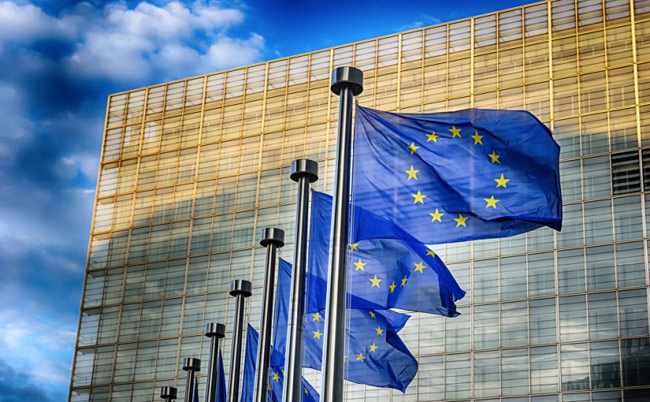A recent resolution adopted by the European Parliament, urging the EU Commission to consider temporary withdrawal of the GSP+ status given to Sri Lanka, has put the spotlight back on the country’s human rights situation, prompting Colombo to defend its “multifaceted progress” in a response on Monday.
Sri Lanka regained the GSP +, or the EU’s ‘Generalised Scheme of Preferences’ in 2017, under the former Maithripala Sirisena-Ranil Wickremesinghe administration, on Colombo’s commitment to implement 27 international conventions on human rights, labour conditions, protection of the environment and good governance. The status effectively removes import duties on goods from Sri Lanka entering the EU.
The June 10 resolution, expressing “deep concern over Sri Lanka’s alarming path towards the recurrence of grave human rights violations”, — an observation earlier made by the UN human rights Chief — makes specific reference to the use of the Prevention of Terrorism Act (PTA), widely termed draconian, pointing to the arrests of prominent lawyer Hejaaz Hizbullah and poet Ahnaf Jazeem, among others, who are in “arbitrary” detention for over a year.
The resolution notes the “continuing discrimination” against and violence towards religious and ethnic minorities, while voicing “serious concern” about the 20th Amendment passed in 2020, and the “resulting decline in judiciary independence, the reduction of parliamentary control, and the excessive accumulation of power with the presidency”. It highlights “accelerating militarisation” of civilian government functions in Sri Lanka, pointing to at least 28 serving or former military and intelligence personnel appointed to key administrative posts since 2020, after the Rajapaksas returned to power.
Responding, Sri Lanka’s Foreign Ministry said it regrets the adoption of the resolution that, it observed, “contains factual inaccuracies, and does not take cognizance of the multifaceted progress made by Sri Lanka in reconciliation and development.” Rejecting claims that the PTA is systematically used for arbitrary detentions, the Ministry government said it was “revisiting provisions” of the Act to propose “necessary amendments”, drawing upon international best practices, months after President Gotabaya Rajapaksa expanded the PTA’s ambit.
The resolution comes ahead of a periodic review of the ‘GSP +’ concessions accorded to the country, that the government said, contributed significantly” to higher production, investment, and improvement of the human capital in Sri Lanka. The fisheries sector too had experienced “a notable growth”, benefitting from the concessions, the Foreign Ministry said in its statement, indicating the significance it attached to retaining the special trade concessions.
Apparently taking a different view, State Minister of Money, Capital Markets and Public Enterprise Reforms Ajith Nivard Cabraal said the government is working out strategies to position itself to export Sri Lankan products “in a competitive business environment rather than depending on trade concessions such as GSP”, the Daily Mirror newspaper reported.
The EU is Sri Lanka’s second-largest trading partner — after China — and its second main export destination, absorbing 22.4% of Sri Lankan exports in 2020, mainly textiles and clothing, according to the European Commission. Following adoption of the resolution last week, Sri Lanka’s Leader of Opposition Sajith Premadasa said in a tweet: “EU parliament resolution calling for the temporary suspension of Sri Lanka’s GSP+ status will have a debilitating impact on our exports and the economy.”
Source:The Hindu


